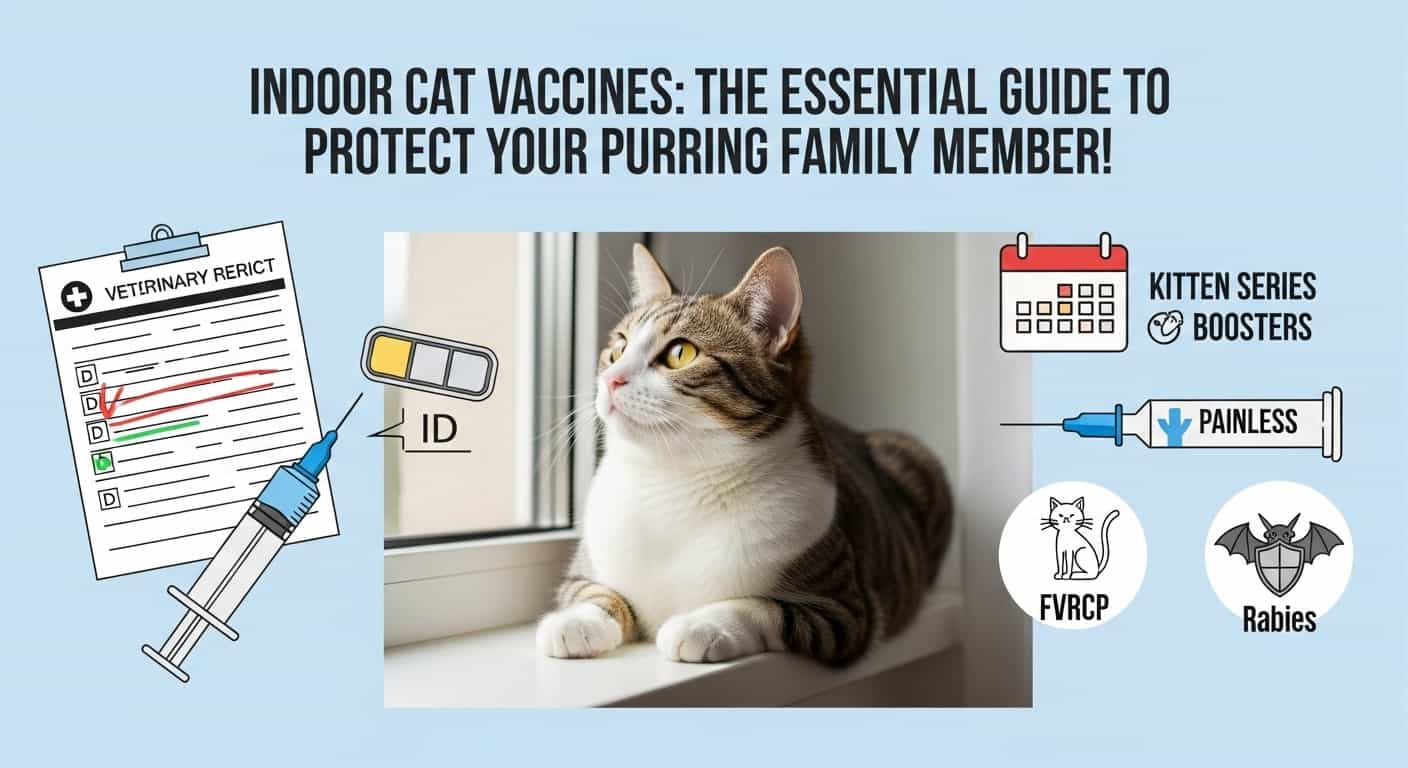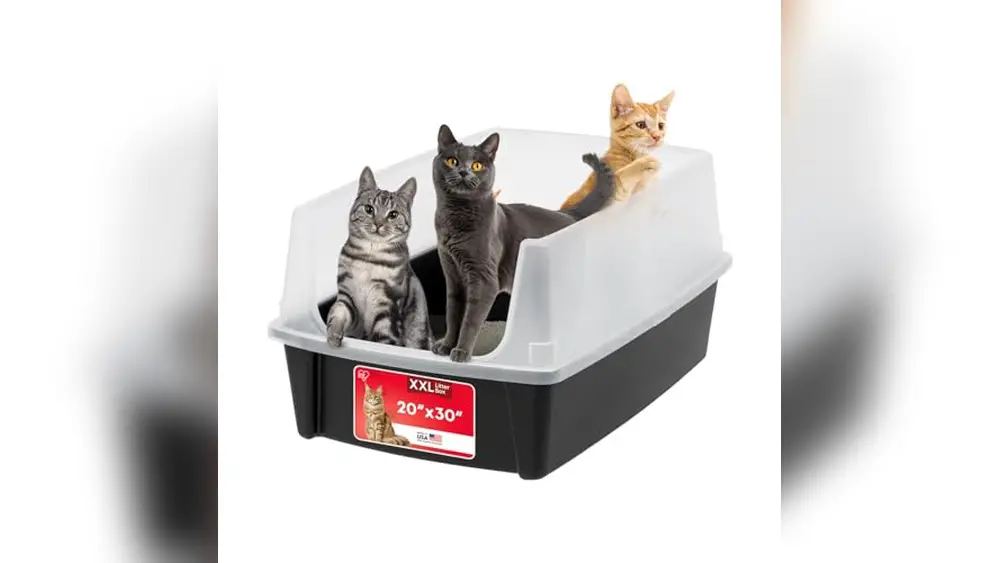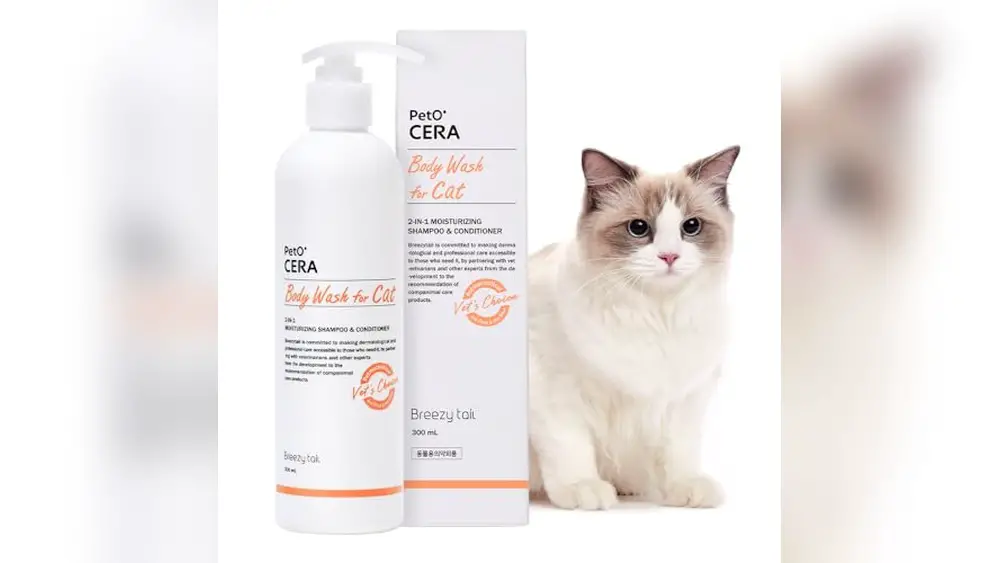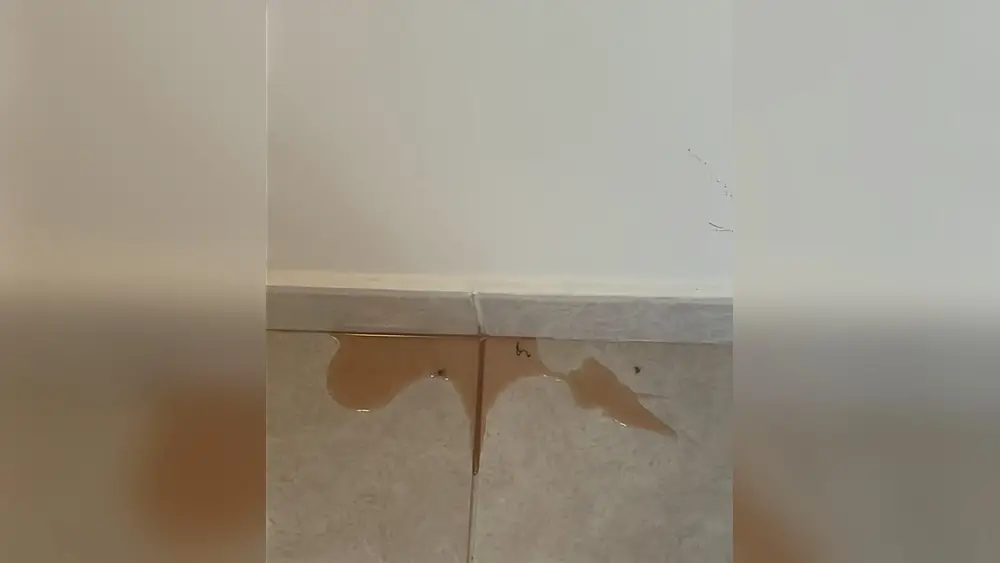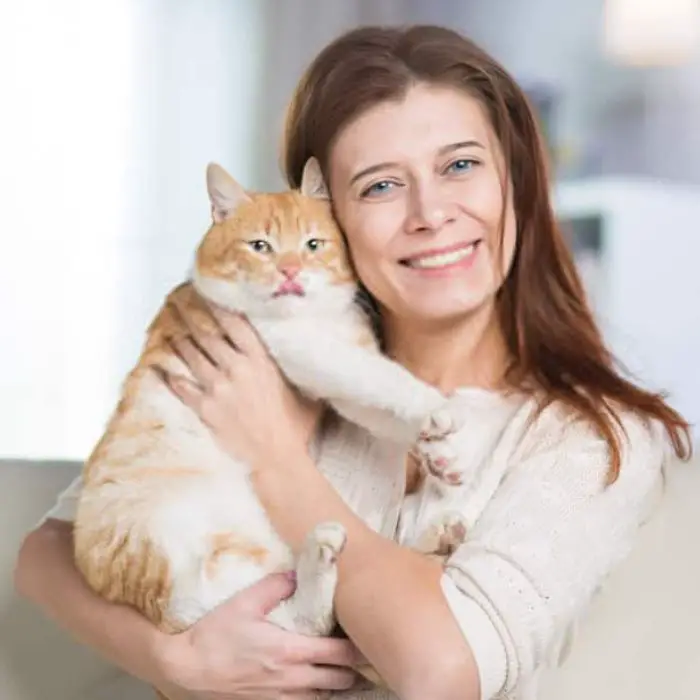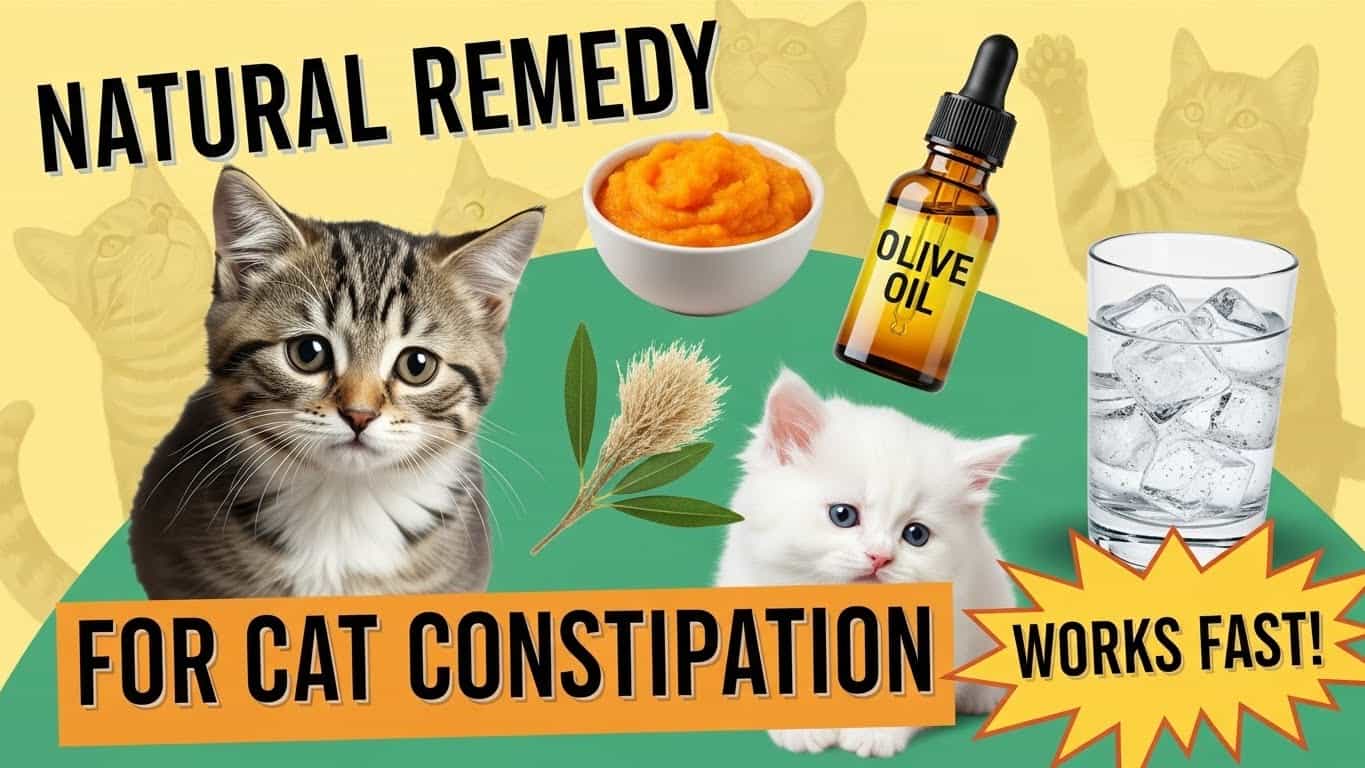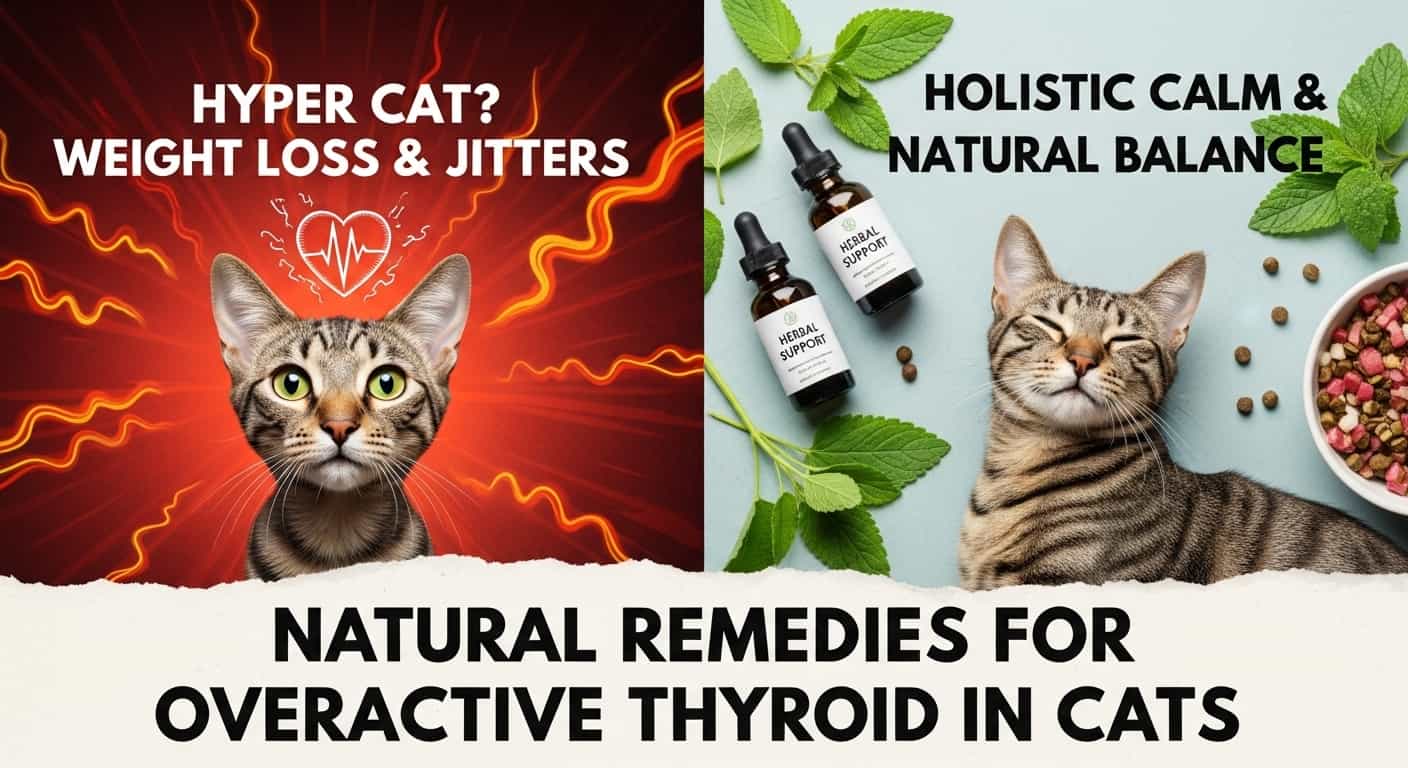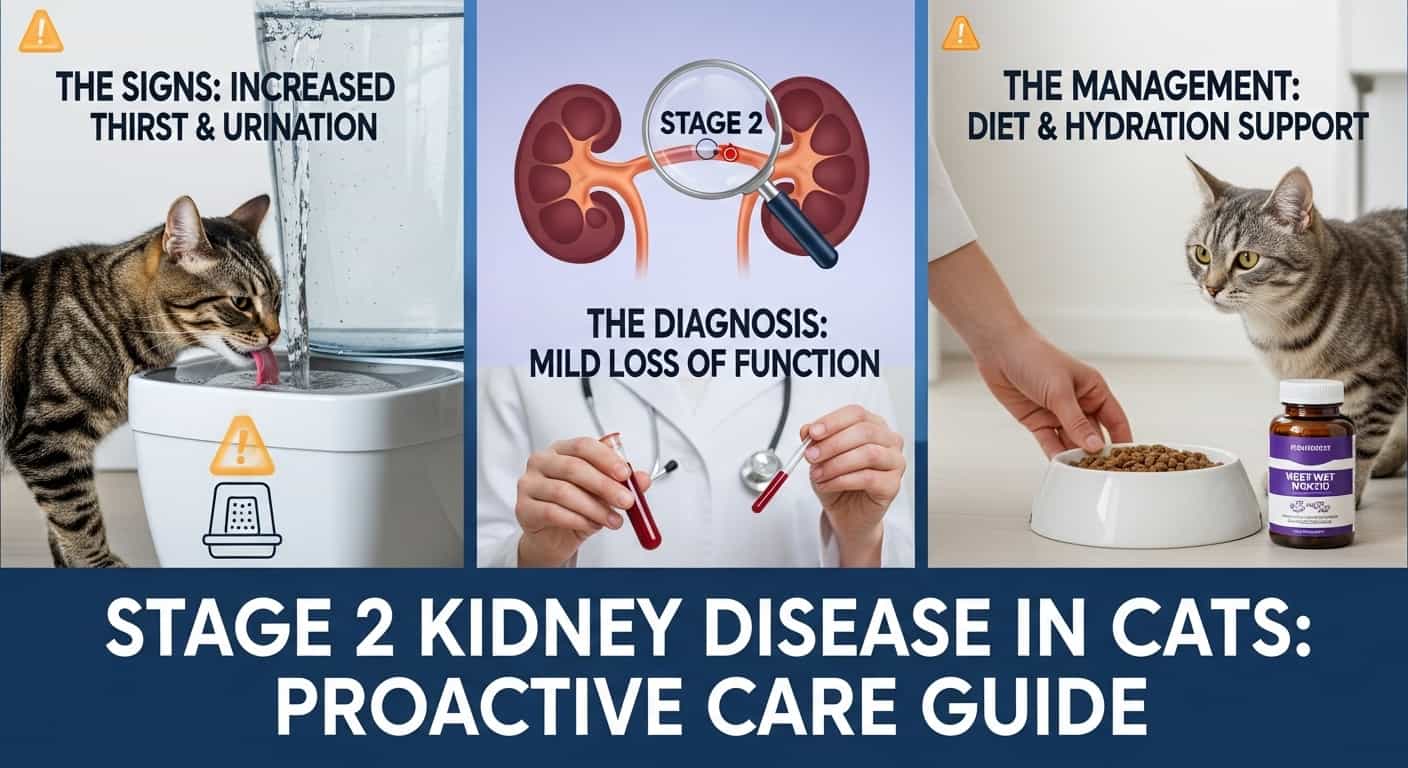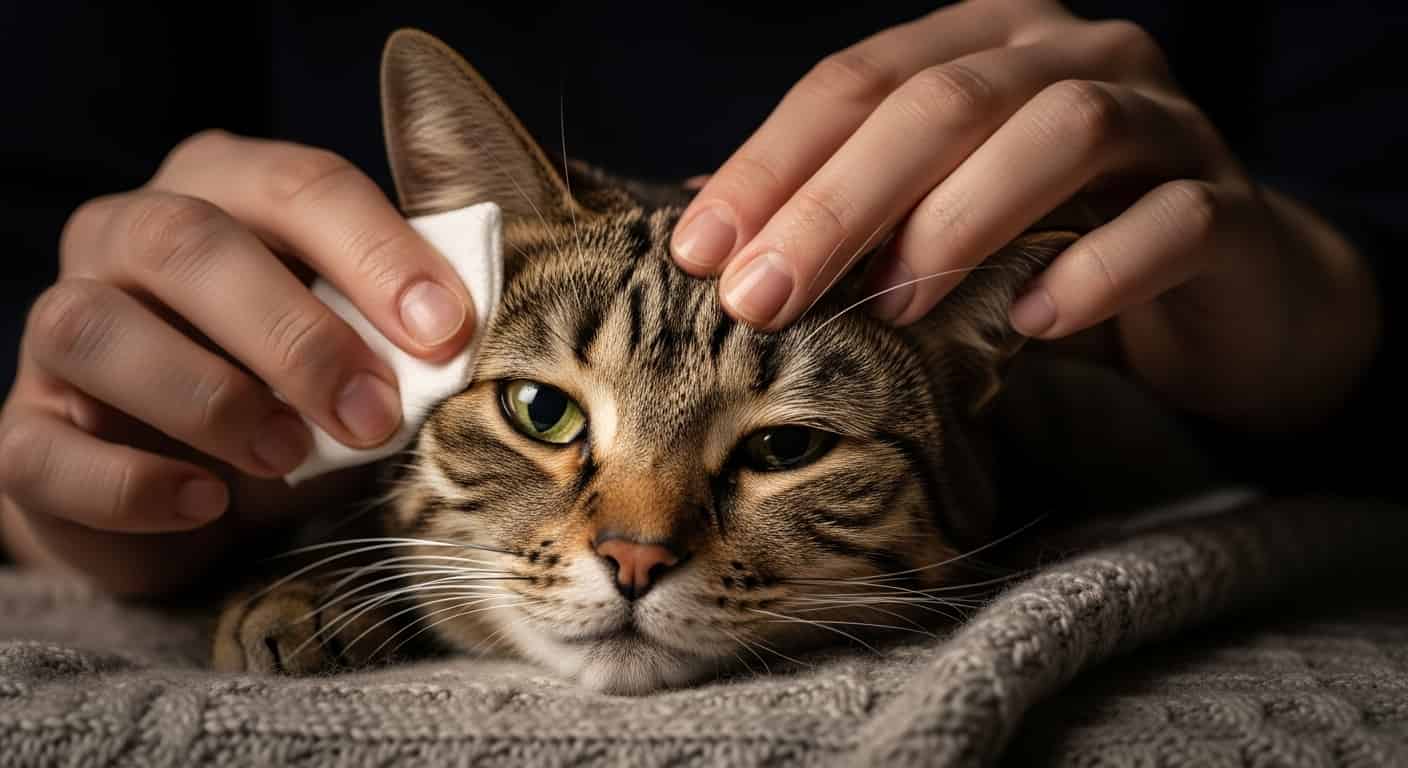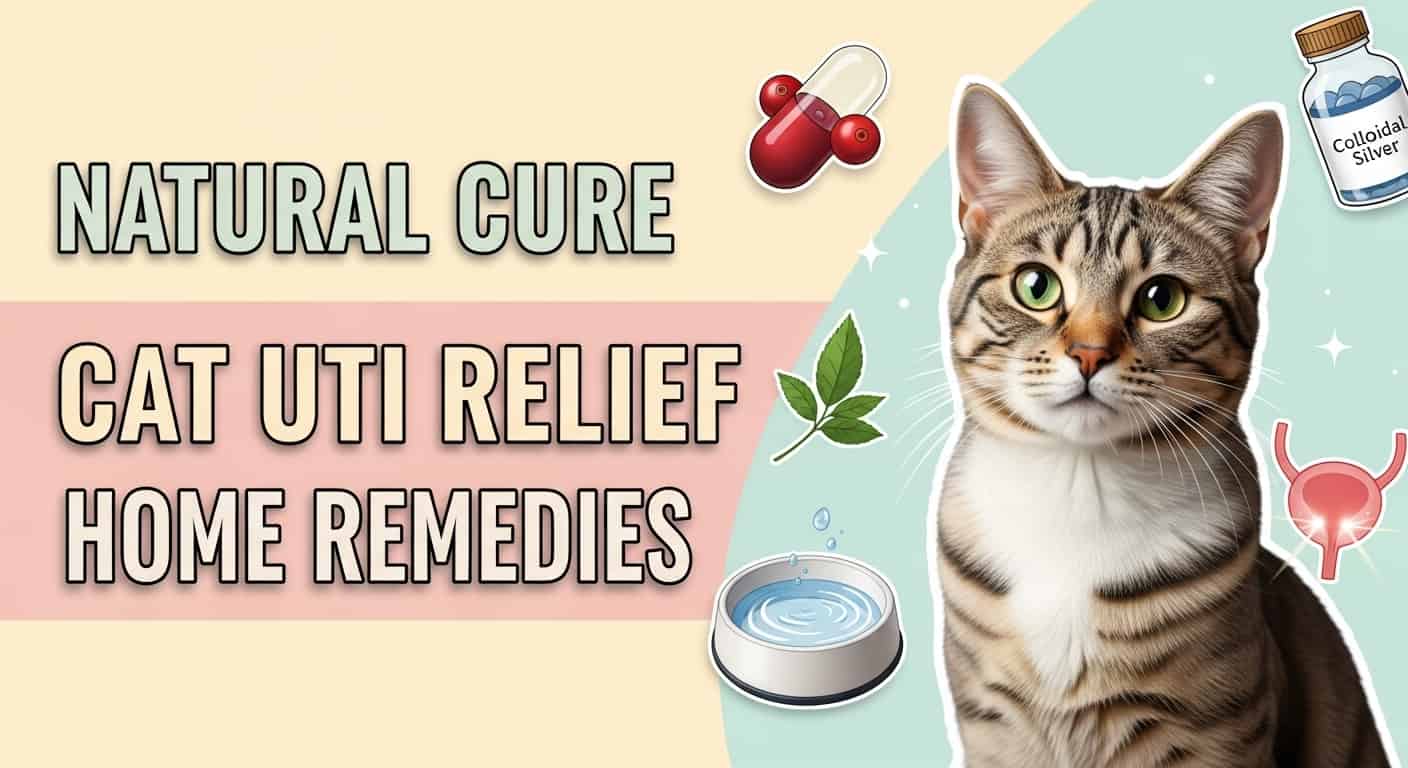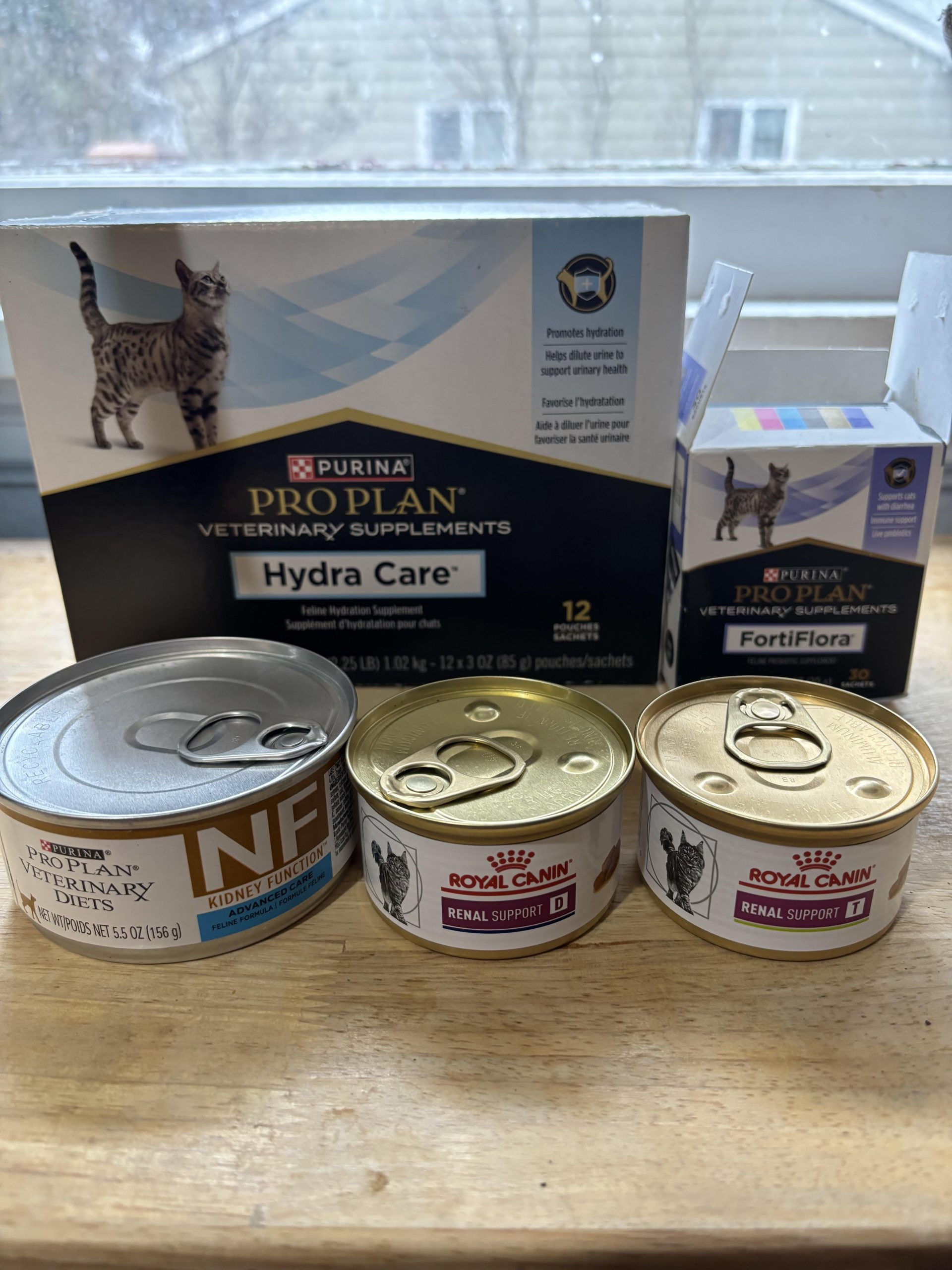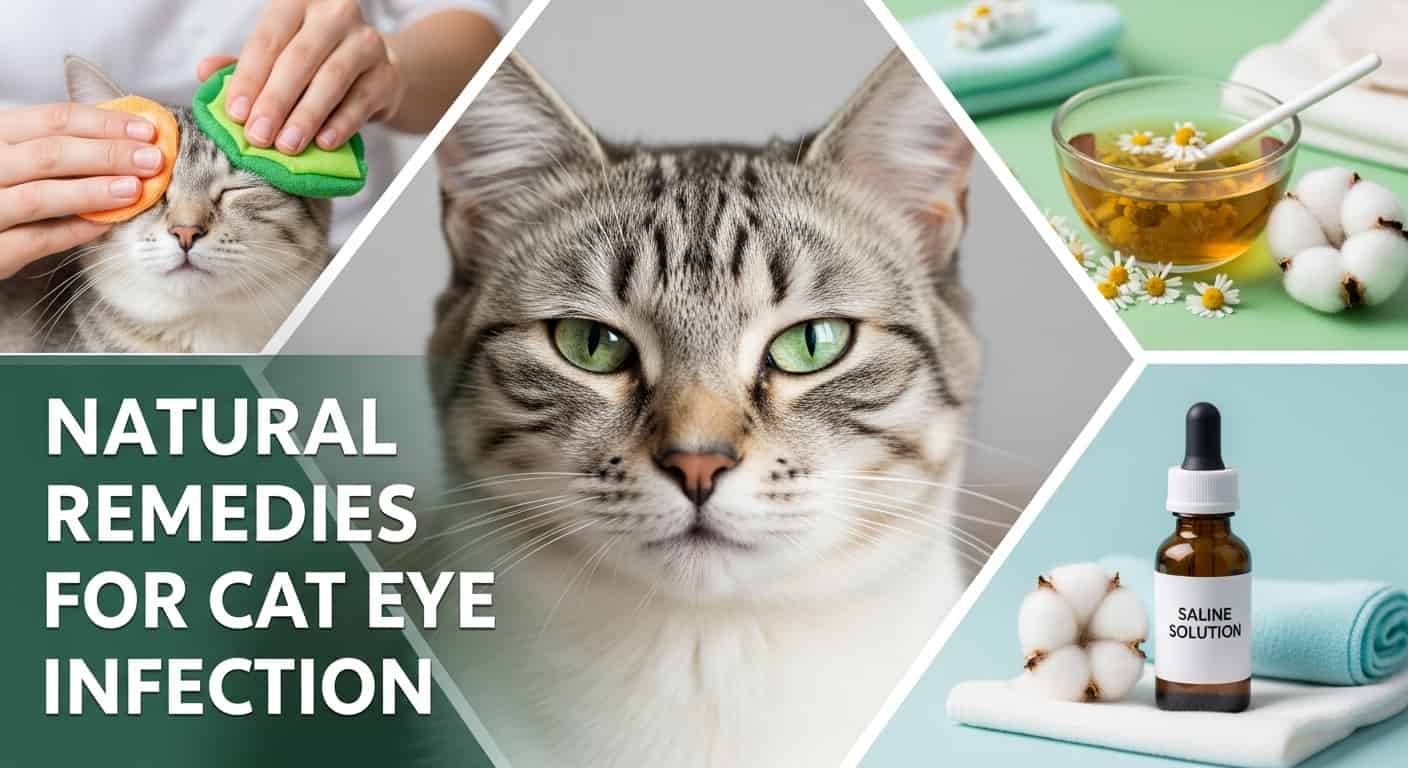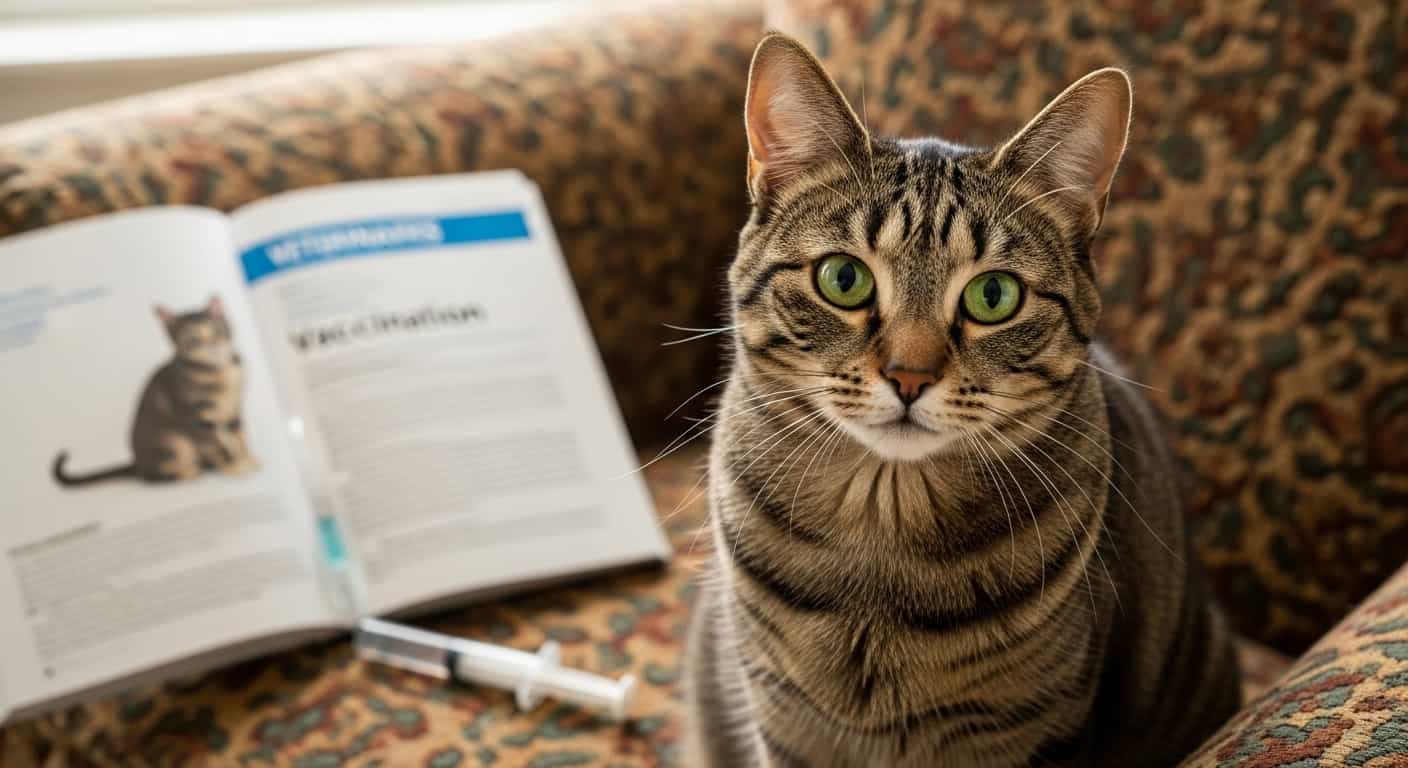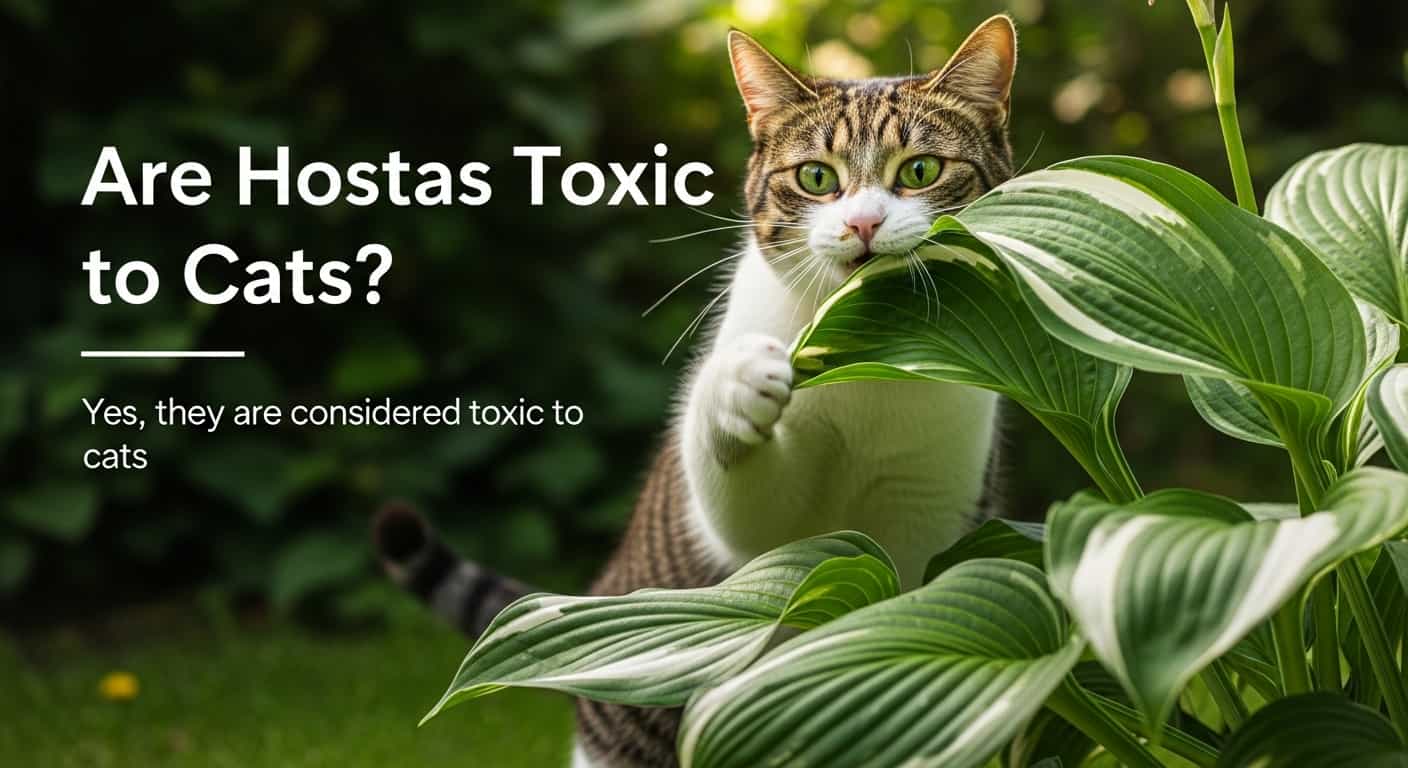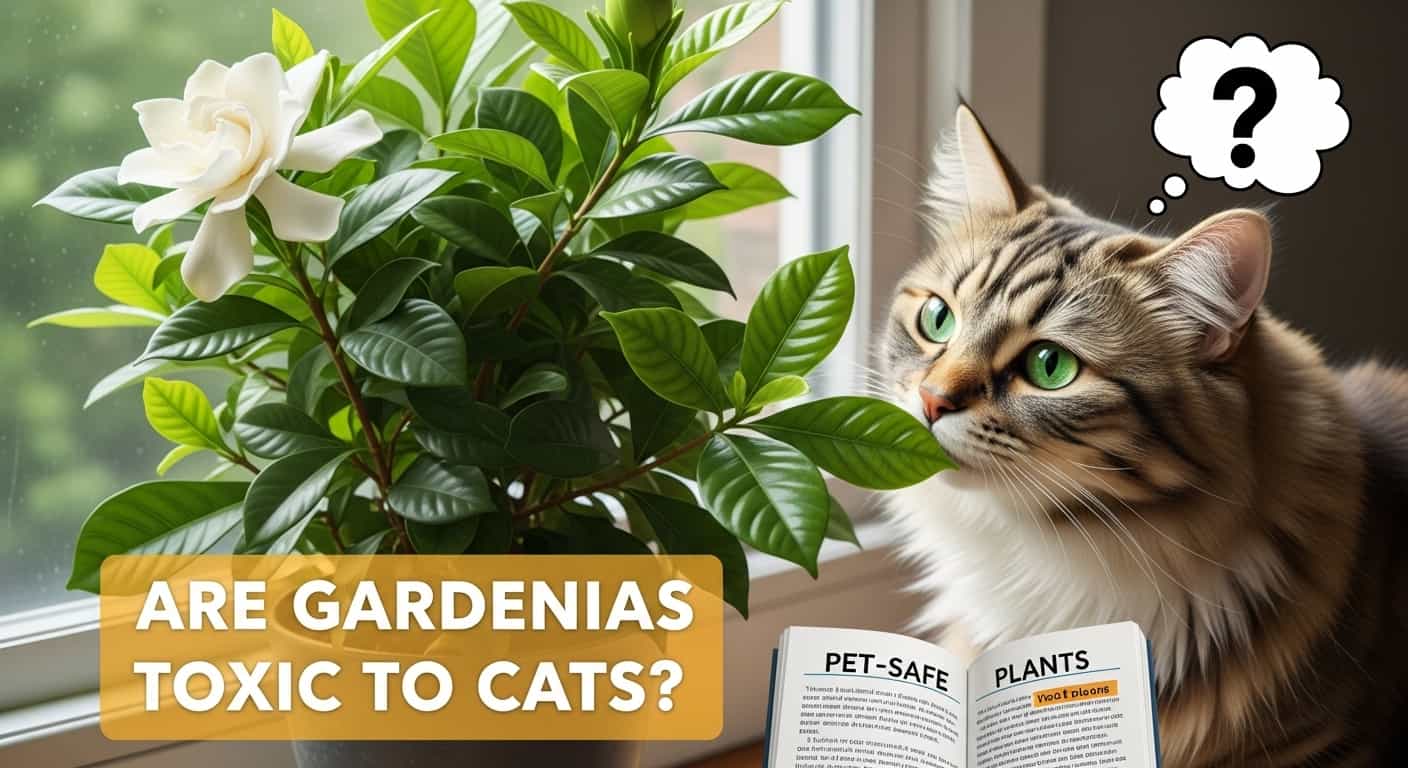Are you the proud owner of a cozy indoor cat, nestled safely away from the outside world? You might think your feline friend is safeguarded from the dangers lurking outdoors, but the truth is, indoor cats still need certain vaccines to stay healthy.
Table of Contents
ToggleThese vaccines protect against diseases that can sneak into your home and affect your cat’s well-being. You want the best for your furry companion, right? Knowing which vaccines are essential can make all the difference in ensuring your cat leads a happy, healthy life.
You’ll discover the key vaccinations indoor cats need and why they’re crucial for your pet’s health. Keep reading to uncover the secrets to safeguarding your indoor cat and ensuring they remain your joyful companion for years to come.
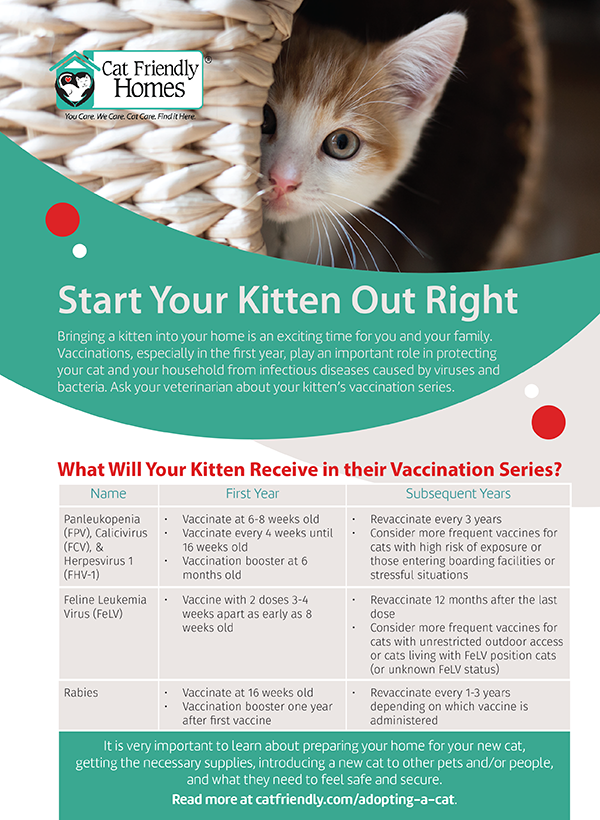
Credit: catfriendly.com
Core Vaccines For Indoor Cats
Indoor cats need core vaccines for good health. These vaccines protect against dangerous diseases. While indoor cats face fewer risks, vaccinations are still vital. They ensure your cat stays healthy and safe.
Rabies Vaccine
The rabies vaccine is crucial for all cats. Rabies affects the nervous system. It can be deadly. Even indoor cats might be exposed through open windows or escapes. Vaccination ensures your cat’s safety and complies with legal requirements.
Feline Distemper Vaccine
Feline distemper, or panleukopenia, is a serious disease. It spreads easily through contact. It can be deadly for unvaccinated cats. The vaccine protects against this risk, keeping your feline friend safe and healthy.
Feline Herpesvirus Vaccine
Feline herpesvirus causes respiratory infections. It spreads quickly among cats. Even indoor cats can contract it. Vaccination reduces the severity and spread of the disease. This ensures a healthier life for your pet.
Feline Calicivirus Vaccine
Feline calicivirus leads to respiratory issues. It spreads through direct contact. The vaccine minimizes the impact of this virus. It helps maintain your cat’s health and well-being. Even indoor cats benefit from this protection.
Here's a related post that you might find useful. Do House Cats Need to Be Vaccinated: Essential Guide
Optional Vaccines
Indoor cats are often seen as safe from diseases. Yet, some vaccines can boost their health further. These optional vaccines provide extra protection against specific illnesses. Deciding on optional vaccines depends on your cat’s lifestyle and risks. Let’s explore some of these vaccines that might be beneficial.
Feline Leukemia Vaccine
Feline Leukemia is a contagious virus affecting cats. The vaccine is not mandatory for indoor cats. But if your cat interacts with other cats, consider it. This vaccine can prevent the spread of the virus. It’s especially useful in multi-cat households. Discuss with your vet to see if it’s right for your cat.
Feline Immunodeficiency Virus Vaccine
Feline Immunodeficiency Virus (FIV) weakens a cat’s immune system. This vaccine protects against a virus similar to human HIV. FIV is mainly spread through bites. Indoor cats are less exposed to these risks. Yet, it’s important for cats with outdoor access. The vaccine helps protect them from potential exposure.
Bordetella Vaccine
Bordetella is a bacterial infection. It causes respiratory issues in cats. It’s more common in cats that spend time in kennels or shelters. Indoor cats usually face a lower risk. Yet, the Bordetella vaccine can be useful in some cases. It provides extra protection during boarding or social events. Consult your vet to determine your cat’s needs.
Vaccination Schedule
Keeping your indoor cat healthy is a priority. Vaccination is essential for their well-being. A proper vaccination schedule helps prevent diseases. It ensures your cat lives a long, healthy life.
Kitten Vaccination Timeline
Kittens need vaccines early. At six weeks, they should receive their first shots. These include vaccines against feline distemper and herpesvirus. Rabies shots are given at 12 weeks. It’s crucial to follow this timeline. It protects them from harmful infections. Regular vet visits ensure they stay on track.
Adult Cat Booster Shots
Adult cats require booster shots. These keep their immunity strong. Boosters are usually given every year. They maintain protection against diseases. Rabies boosters are also essential. Regular updates prevent potential health risks. Consult your vet for a tailored plan.
Here's a related post that you might find useful. Should I Vaccinate My Cat: Essential Health Insights
Frequency And Timing
Vaccination frequency depends on your cat’s age. Kittens need more frequent shots. Adult cats require annual boosters. Timing is vital for effective protection. Vaccines must be administered at the right intervals. This ensures your cat’s safety and health. Always stick to the recommended schedule. Regular check-ups help monitor their needs.
:strip_icc()/adult-cat-vaccination-schedule-4846632_V2-31ce9ac5ef8141e3a7f4cf2b2886eeca.jpg)
Credit: www.thesprucepets.com
Risks And Benefits
Understanding the risks and benefits of vaccines for indoor cats is vital. While vaccines protect against diseases, they may have side effects. Weighing these aspects helps in making informed decisions for your feline friend.
Potential Side Effects
Vaccines can cause mild side effects in cats. Common reactions include slight fever or tiredness. Some cats might experience swelling at the injection site. Rarely, more serious reactions occur, like allergic responses. Always watch your cat after vaccination. Contact your vet if side effects persist.
Long-term Health Benefits
Vaccines offer significant long-term benefits. They protect against serious diseases like feline leukemia. Vaccinated cats have stronger immune systems. This reduces the risk of infections over time. Vaccines also contribute to community health. They help prevent outbreaks of contagious diseases. A healthy cat leads to a happy home.
Choosing The Right Vaccines
Indoor cats need vaccines to stay healthy and safe. Essential vaccines include feline distemper and rabies shots. Consult your vet for specific recommendations.
Choosing the right vaccines for your indoor cat can feel overwhelming. With various options available, ensuring your feline friend receives the necessary protection is crucial. Understanding your cat’s unique needs and circumstances will guide you to make informed decisions. Let’s dive into the essential steps for choosing the right vaccines for your indoor cat.Consulting With A Veterinarian
Your veterinarian is your best ally in navigating the world of cat vaccines. They bring expertise and personalized advice tailored to your cat’s health. Have an open conversation with your vet about your concerns and goals. Ask about the core vaccines that all indoor cats should receive, such as rabies and feline distemper. Regular check-ups also allow your vet to assess any changes in your cat’s health and adjust the vaccination plan accordingly. Have you booked your next appointment yet?Assessing Lifestyle And Environment
Your cat’s lifestyle and living environment play a significant role in determining vaccine needs. Does your cat have access to a balcony or backyard? Interactions with other animals, even briefly, might require additional vaccines. Consider your household’s traffic. Frequent visitors can inadvertently introduce germs and viruses, raising the risk for your indoor cat. Are you hosting guests regularly? Reflect on your travel habits. If you occasionally bring your cat to new places, additional vaccinations might be necessary. Is your furry companion joining you on your next trip? Making informed choices about your indoor cat’s vaccinations ensures their health and happiness. Don’t hesitate to ask questions and be proactive in your approach. What steps will you take to ensure your cat’s well-being today?Maintaining Health Records
Indoor cats need essential vaccines to stay healthy and protected. Core vaccinations include rabies, feline distemper, and feline herpesvirus. Regularly updating health records ensures your cat’s vaccinations are current, safeguarding their well-being.
Maintaining health records for indoor cats is essential. It ensures your feline friend stays healthy and vaccinated on time. Keeping these records organized helps track vaccinations and health history. This practice prevents missed appointments and keeps your cat in optimal health. Regular updates and documentation are crucial for effective care.Tracking Vaccinations
Tracking vaccinations might seem overwhelming. It’s an essential part of pet care. Record each vaccine your cat receives. Include the date and type of vaccine. Keep this information in a dedicated file. This ensures easy access when needed. A digital or physical record works well. It simplifies tracking and reduces stress.Importance Of Documentation
Documenting your cat’s health history is vital. It helps during vet visits. Vets can make informed decisions with accurate records. Documentation aids in understanding your cat’s medical needs. It also ensures compliance with local pet health regulations. An organized record supports healthy living for your cat.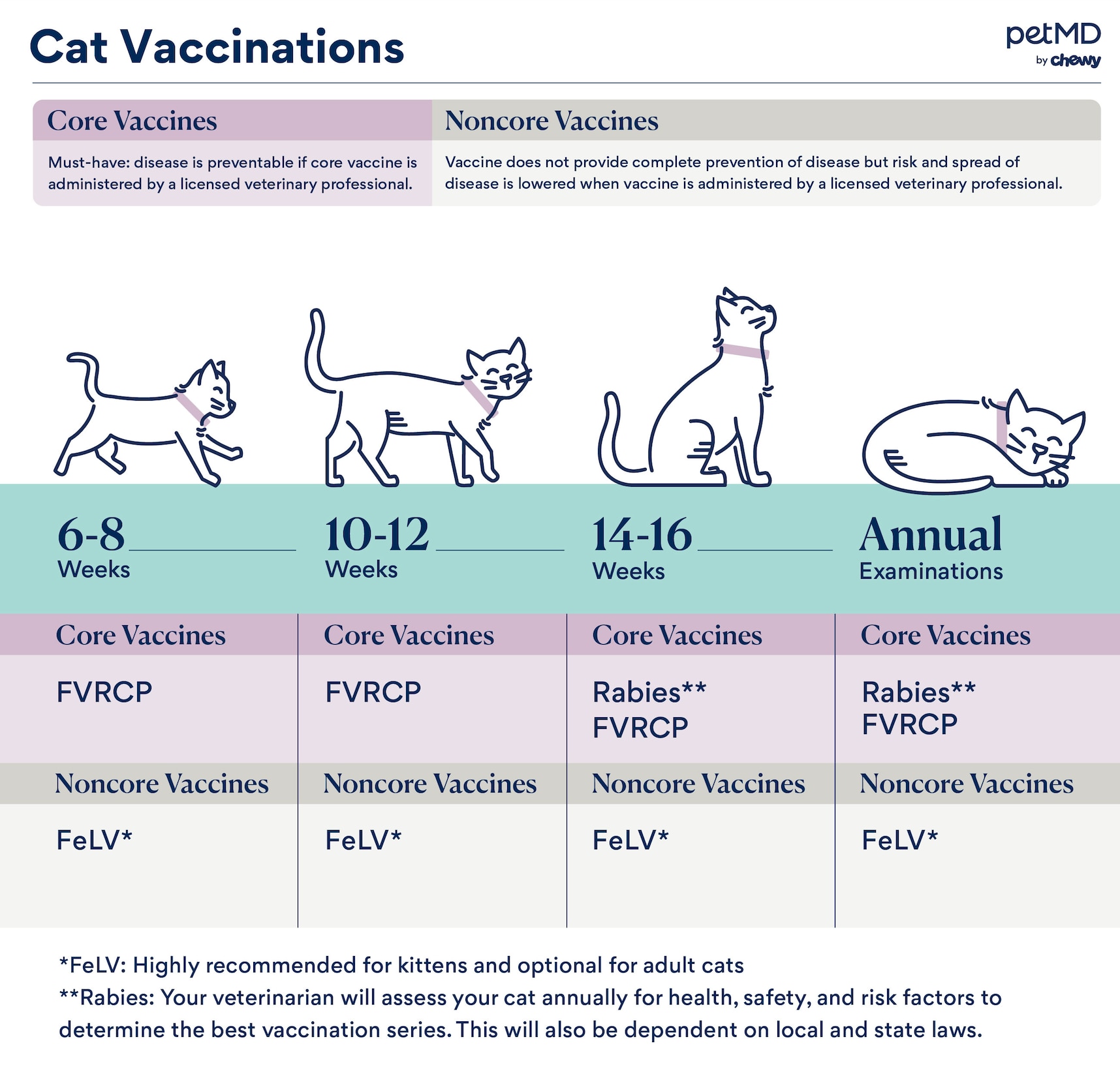
Credit: www.petmd.com
Frequently Asked Questions
What Are Core Vaccines For Indoor Cats?
Core vaccines for indoor cats include FVRCP and Rabies. The FVRCP vaccine protects against feline viral rhinotracheitis, calicivirus, and panleukopenia. Rabies vaccination is crucial for legal and health reasons. Consult your veterinarian for a tailored vaccination schedule. Regular vet visits ensure your cat stays protected and healthy.
Do Indoor Cats Need Annual Vaccinations?
Yes, indoor cats benefit from annual vaccinations. Vaccinations boost their immune system against potential threats. Even indoor cats can be exposed to viruses and diseases. Regular vet visits ensure your cat’s health and well-being. Discuss with your vet to determine the best vaccination schedule for your cat.
Can Indoor Cats Skip The Rabies Vaccine?
No, indoor cats should not skip the Rabies vaccine. Rabies is a fatal disease that affects all mammals. Vaccination is often required by law, even for indoor cats. It protects your cat and prevents potential legal issues. Discuss any concerns with your veterinarian for the best advice.
Are There Non-core Vaccines For Indoor Cats?
Yes, non-core vaccines are available for indoor cats. These include vaccines for feline leukemia virus (FeLV) and feline immunodeficiency virus (FIV). Non-core vaccines are recommended based on your cat’s lifestyle and risk factors. Consult your vet to determine which non-core vaccines are necessary for your cat.
Conclusion
Ensuring indoor cats have the right vaccines keeps them healthy. Vaccines protect against diseases and boost immunity. It’s crucial to consult your vet for tailored advice. Each cat may need different vaccinations based on lifestyle and health. Staying informed helps you make the best choices for your pet.
Regular vet visits are important for updated vaccinations. This keeps your indoor cat safe and healthy. Be proactive and attentive to your cat’s needs. A healthy cat is a happy cat. Prioritize their well-being with the right vaccines.

